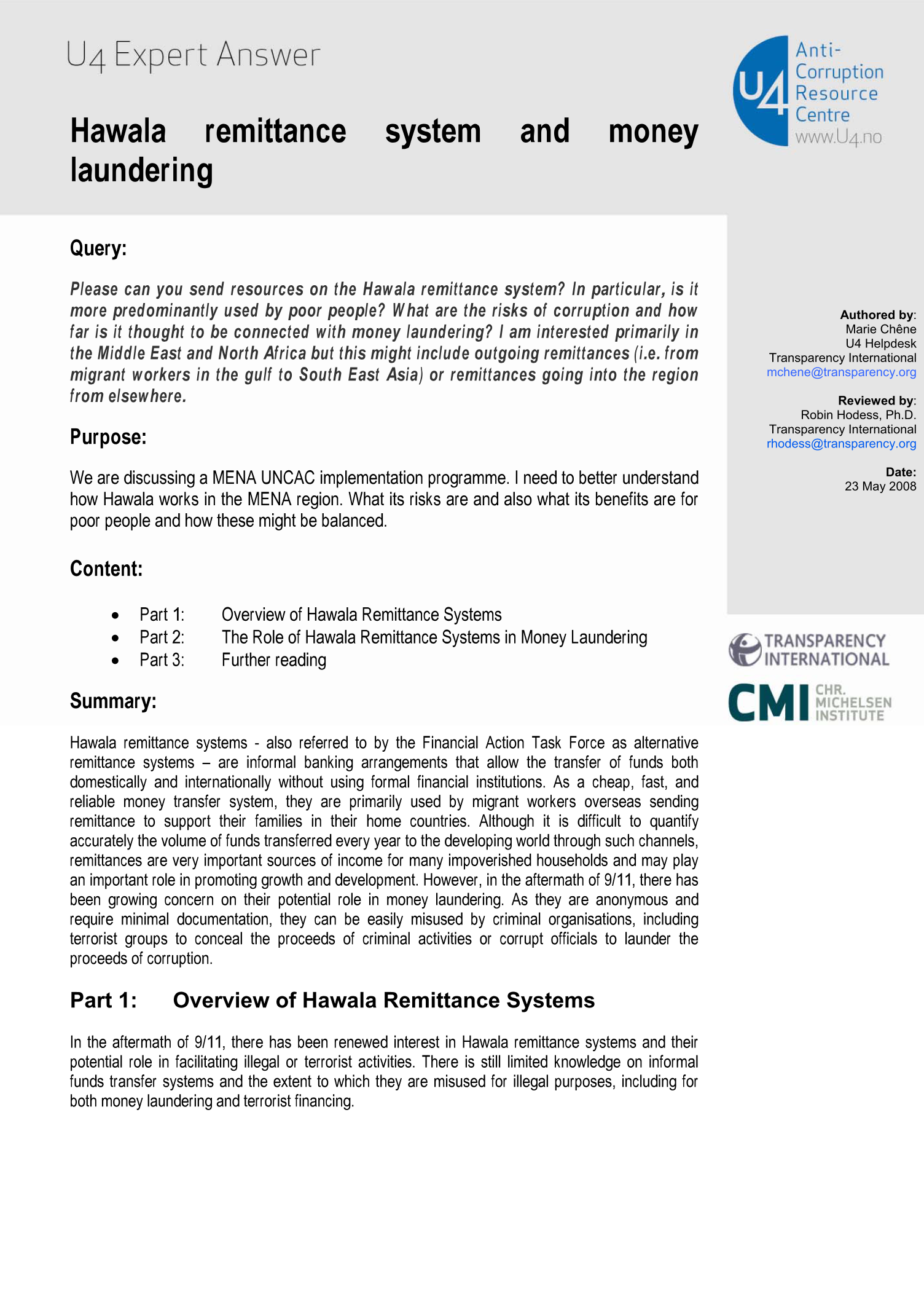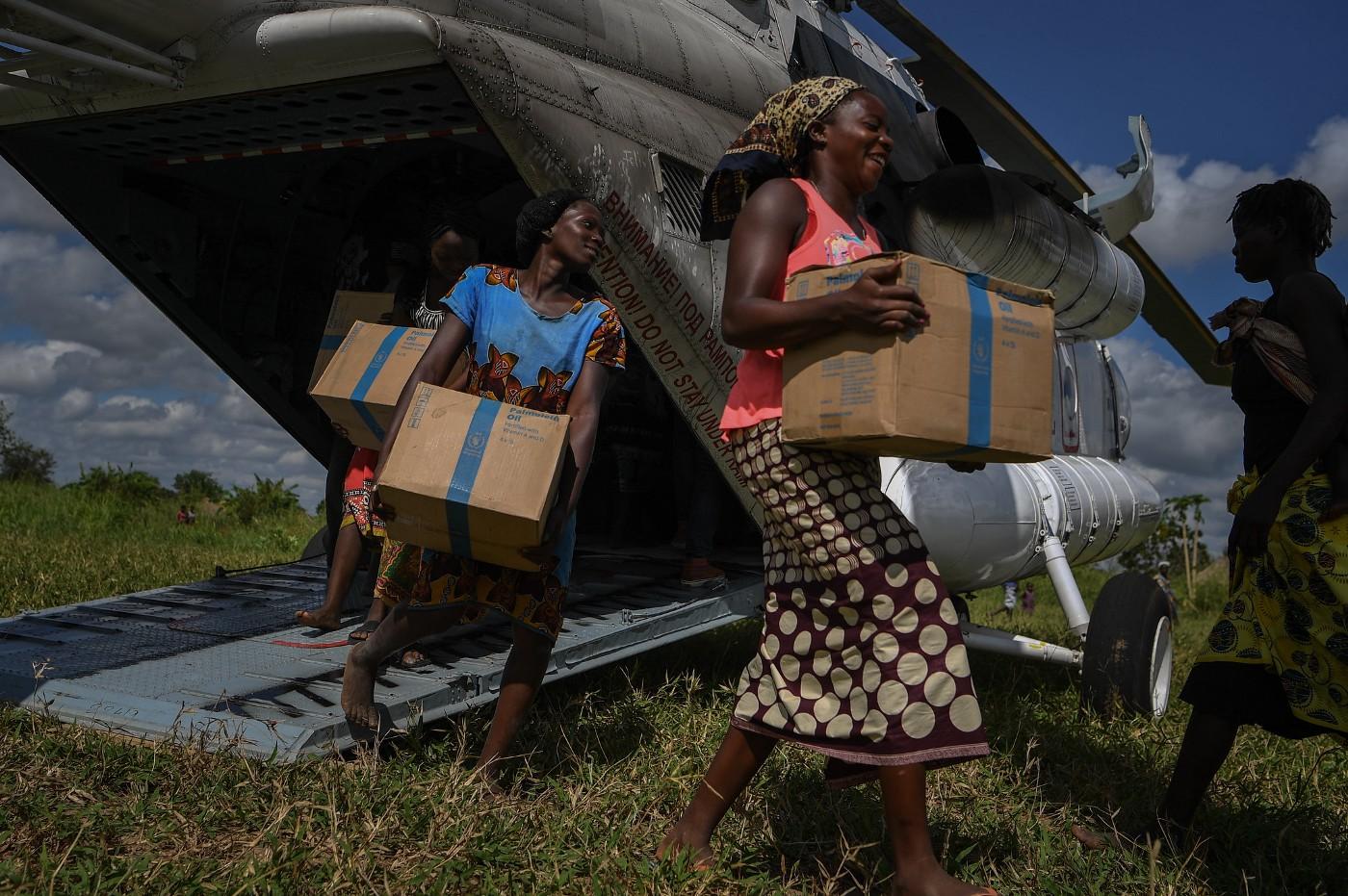U4 Helpdesk Answer
Hawala remittance system and money laundering
Hawala remittance systems - also referred to by the Financial Action Task Force as alternative remittance systems – are informal banking arrangements that allow the transfer of funds both domestically and internationally without using formal financial institutions. As a cheap, fast, and reliable money transfer system, they are primarily used by migrant workers overseas sending remittance to support their families in their home countries. Although it is difficult to quantify accurately the volume of funds transferred every year to the developing world through such channels, remittances are very important sources of income for many impoverished households and may play an important role in promoting growth and development. However, in the aftermath of 9/11, there has been growing concern on their potential role in money laundering.

Cite this publication
Chêne, M. 2008. Hawala remittance system and money laundering. Bergen: U4 Anti-Corruption Resource Centre, Chr. Michelsen Institute (U4 Helpdesk Answer Helpdesk)
Disclaimer
All views in this text are the author(s)’, and may differ from the U4 partner agencies’ policies.
This work is licenced under a Creative Commons Attribution-NonCommercial-NoDerivatives 4.0 International licence (CC BY-NC-ND 4.0)

